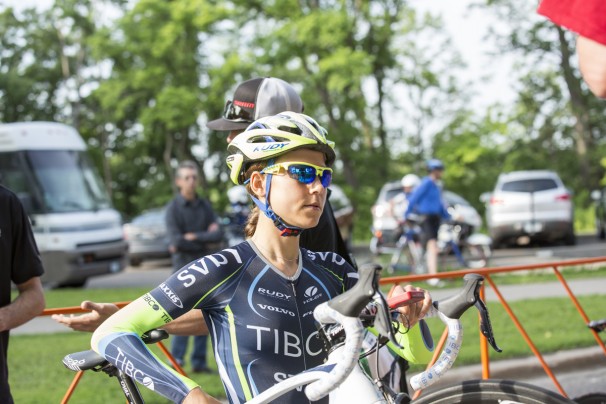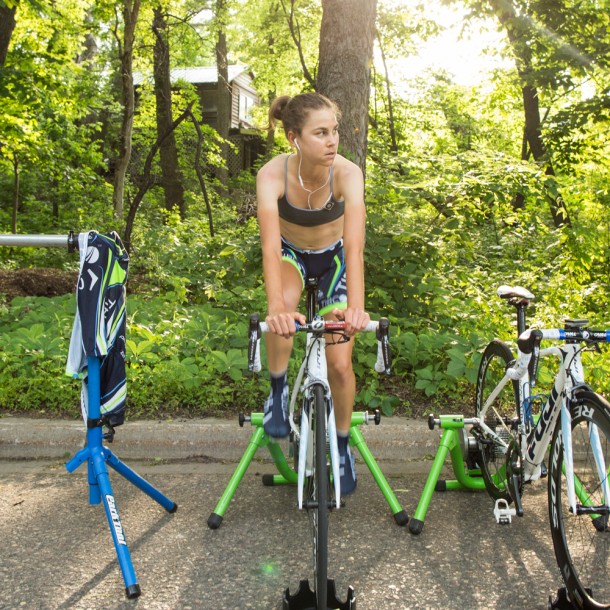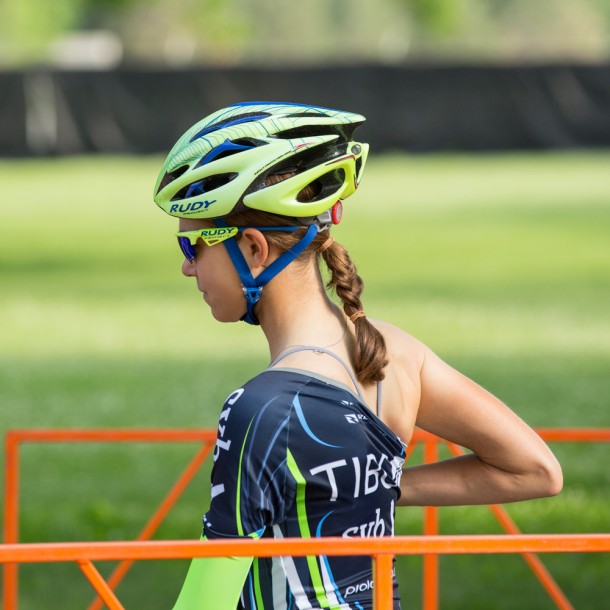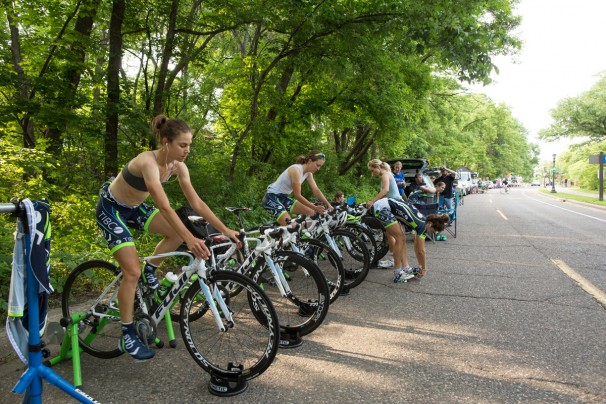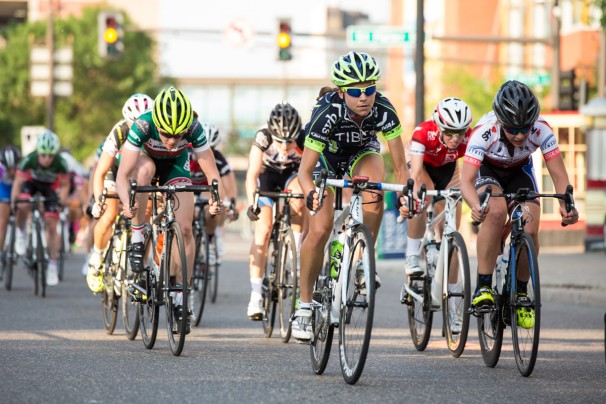
A few weeks back TSH was pondering with Cat 2 bike racer, Dani Marie Smith about what turning professional means to a young cyclist. Lucky for us and via the colliding worlds of instagram and the Northstar Grand Prix we happened upon the lovely blog by 2nd year professional, Team Tibco rider, Kristabel Doebel-Hickok, known as “Tink”.
THE LIFE OF TINK-RACE READY is kristabel’s blog about racing, training and the learning curve of becoming a professional. It is a generous guide to the ups and downs of a sporting life.
…
Dani Marie Smith Interviews Kristabel Doebel-Hickok
Dani
Currently, how old are you and when did you begin cycling?
Kristabel
I am 25 and began cycling in December 2011 when I graduated from Vanderbilt.
Dani
Where did you grow up and where do you currently reside?
Kristabel
I grew up in Southern California (Marina del Rey), and that is currently my home base between races.
Dani
What were your goals heading into the first day of college?
Kristabel
I attended Vanderbilt University on a cross country scholarship. I selected that university because of its academic prestige, coach, and mild climate. At the time, excelling in the classroom and on the track were my priorities and consumed my life. I wish I could say the grades and times were intermediary goals to a larger one, but entering college I didn’t know what I really wanted out of it all. It was the next logical step after high school, and so I took and did my best.
Dani
Originating from a running background, what provoked you to give cycling a shot?
Kristabel
My last couple years at Vanderbilt, I suffered from chronic hamstring pain that severely limited my ability to train. I would cross train on the spin bike nearly every morning, usually for 90 minutes, to supplement my running workouts. I always loved the feel of pedaling because it only hurt that good kind of hurt, the kind that comes from you pushing your body, as opposed to the pain of an injury. When I graduated, I figured I should pedal out on the road rather than stationary, and I hoped the bike would give me another way to compete if I still had that drive in me.
Dani
What teams/groups have you been affiliated with?
Kristabel
I started on Big Orange Cycling, a local men’s team that took me under its wing and had me racing within a couple months. Entering the 2013 season, I formed the SPY GIANT RIDE team with the amazing support and encouragement of Michael Marckx. And in May 2013, I accepted the wonderful opportunity to begin my professional cycling career with Team TIBCO.
Dani
How much did you know about cycling before you began to be competitive?
Kristabel
My first race was February 4, 2012, less than 2 months after I bought my road bike. I took 2nd place in that Cat 3/4 Boulevard RR, so I guess I was competitive in my category from the beginning. That also meant I knew next to nothing about cycling. I remember the night before that race being so nervous about the start. I was afraid the pack would fly off before I could clip in, like the race would be to see who could clip in and sprint off the fastest. To my surprise, we rolled out slowly, just like a friendly group ride. It’s only when I found myself in high level crits that it IS important to be able to clip in and get to the front quickly. You learn a lot by just by racing and being open to the advice and constructive criticism of more experienced racers.
Dani
Did you have previous experience or knowledge in the sport?
Kristabel
None at all, and that is why it was a rude shock when I learned it isn’t all about who has the most endurance. It takes so much mental and physicals strength and knowledge of tactics to race well at the higher level of the sport.
Dani
How did you educate yourself on the sport? Did you find the information available overwhelming?
Kristabel
By racing and listening to my competitors when they tried to help me learn from my mistakes, reaching out to other pros who want to be mentors to up and comers, and working with my coach Ron Peterson. For a while, it seemed everyone wanted to play coach despite me already having one, and that was overwhelming because they would contradict each other. And so I had to learn to say thank you for caring but I trust my coach, and then to live up to those words.
Dani
What made you realize you wanted to further pursue your athletic career in cycling? How did you know this was even possible? Or did you?
Kristabel
I took two months to just “play” on the bike, but after a month I knew I wanted to reach my potential in the sport and that this would take years. I still haven’t done that, but I believe it is possible so long as I still want it.
Dani
Can you describe your emotions when Team Tibco asked you to join the team?
Kristabel
The initial invitation came from the director, Manel Lacambra, and I was beyond excited. However, I was also a bit uncertain as to whether I was ready to make the step to pro racing and if this team was the best one to help me make it. Initially I declined the offer. But I came to regret that decision, and so eventually I accepted. Once I made that decision, it was pure excitement and trust in Manel who did a fabulous job of introducing me to professional cycling.
Dani
I have been a runner my whole life, and immediately realized this sport was not equivalent to the concept of pure mental and physical toughness of endurance racing-but an additional technical handing, nutrition, teamwork, strategy, and overall environmental awareness. How did you make this transition? Was it a natural adjustment?
Kristabel
It was a really hard realization and adjustment, and I’m still on the learning curve especially regarding race strategy and technical skills. Being on a team helps a lot with learning tactics, and again there is no substitute for race experience.
Dani
How do you stay positive?
Kristabel
My coach, mentor, friends, and family all keep believing in me and helping me understand how to keep moving forward. I recognize my mistakes, learn from them, and work to strengthen my weaknesses. The progress I see from that process keeps me positive.
Dani
What type of competitive mindset did you need to develop to reach the professional level? How was this different from running?
Kristabel
I think my mindset of doing my chosen sport to the best of my abilities is what allowed me to reach the professional level. Running is much more of an individual sport, but early in my cycling career I learned that this is a team sport and so I wanted to be the best teammate I could be and still strive for that.
Dani
I am personally new to the sport, and up until about 2 years ago, I hadn’t realized cycling had such a captivating, welcoming, and competitive atmosphere. To be entirely honest, I was completely ignorant to the sport entirely. If you could summarize competitive cycling to an interested group of novice cyclists (or any curious individuals) – what would it be?
Kristabel
Competing in cycling allows you to challenge and push yourself in ways you never expected with the support of a whole community that loves and respects what we do.
Dani
Like any sport, there isn’t any black and white “how-to” manual that illustrates the steps to become a professional athlete. However, it’s important to realize that some failures are crucial for the learning experience. What are some considerations one would need to understand that you believe are vital?
Kristabel
One of the people that helps me, Michael Engleman, told me to view every race as a classroom. Again, nothing substitutes for racing, making mistakes, and then learning from them. So know you will have what seem like bad moments/races, but try to view these as an opportunity to grow. And accept that crashes will happen and you will recover, it’s part of the sport and fear of it will only limit you. Finally, always respect all your competitors and give back to your sponsors that make racing possible and fun!
Dani
If you can summarize your perception of professional cycling in one sentence, how would you express?
Kristabel
I’m going to steal a line from Hilton Clarke, “this sport is bloody hard, but we love it.”
Dani
Understanding the financial difficulties in women’s cycling, especially those in the early stages of their career, what type of support (i.e. family, friends, other careers) do you believe are necessary?
Kristabel
Cycling is an expensive sport. And although support for women’s racing is growing, you’re going to need another source of financial stability especially in your early years.
Dani
Noticing you majored in Economics, what are your future career aspirations other than cycling?
Kristabel
I believe every experience and opportunity you have and embrace develops you as a person. My studies in Economics certainly helped shape my perspective, and so too is my time spent as a professional cyclist. I don’t know what path I’ll head down other than cycling, but I’ll bring to it everything I’ve gained from all my studies.
Dani
What kind of developments in women’s cycling would you like to be a part of in the future?
Kristabel
Of course I would love to see more women’s races and equal prize money and support in comparison to men’s cycling. And I think continuing to share the sport and all it has to offer with the community is a great foundation for this. That’s one reason that I try to share my journey. The sport has so much to offer to both men and women, but a lot of people don’t realize this because they don’t understand the sport and it’s community.
Dani
Ok, we saved the most important question last. How did yo get the nickname “Tink”?
Kristabel
The Big Orange men who I met my third day on the bike gave it to me because I am light and fast like Tinkerbell. That day was my first time climbing, and I followed them up Fernwood (a steep climb). It is a ride that I will never forget.

